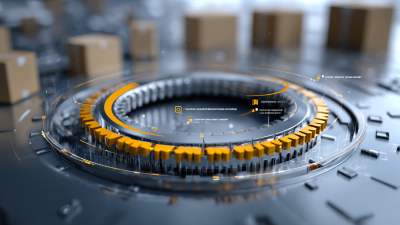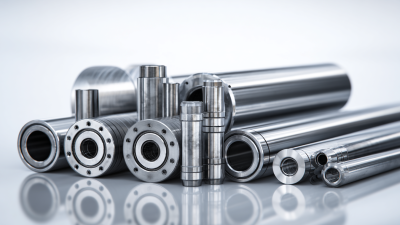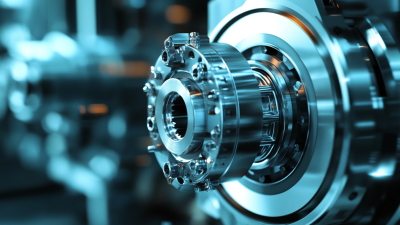How to Choose the Right Large Bore Bearings Supplier for Your Industrial Needs
In the industrial sector, selecting the right Large Bore Bearings Supplier is crucial for optimizing operational efficiency and minimizing downtime. According to recent market research conducted by MarketsandMarkets, the global bearing market is projected to reach $80 billion by 2025, with large bore bearings playing a significant role in this growth. These components are essential in heavy machinery, including mining equipment, construction vehicles, and power generation systems, where high loads and harsh operating conditions are common. As industries evolve and demand for reliable performance increases, choosing a supplier with a proven track record, high-quality materials, and advanced technology becomes paramount. This guide aims to provide insights on key factors to consider when selecting the right supplier, ensuring that your industrial needs are met with the utmost precision and reliability.
Identifying Key Specifications for Large Bore Bearings in Your Industry
When selecting a large bore bearings supplier for your industrial needs, it's essential to identify key specifications that align with your operational requirements. Start by considering the load capacity of the bearings. This specification is crucial as it determines how much weight the bearing can support under various operational conditions. Depending on your industry—whether it be mining, construction, or manufacturing—evaluating the load ratings will help ensure that the bearings can handle the stresses they will encounter during use.
Another critical specification to focus on is the material composition of the bearings. Different materials offer varying levels of durability, corrosion resistance, and thermal stability. For instance, high-performance alloys may be necessary for applications involving extreme temperatures or corrosive environments. Understanding the environment in which the bearings will operate, including potential exposure to chemicals or abrasive materials, can guide you in selecting the right material. Additionally, consider the precision and tolerance levels required for your machinery, as these factors significantly impact overall performance and longevity of the bearings in your application.
How to Choose the Right Large Bore Bearings Supplier for Your Industrial Needs - Identifying Key Specifications for Large Bore Bearings in Your Industry
| Specification |
Value |
Industry Application |
Notes |
| Inner Diameter |
100 mm |
Mining Equipment |
Suitable for high load applications. |
| Outer Diameter |
120 mm |
Construction Machinery |
Designed for robustness in harsh environments. |
| Width |
80 mm |
Agricultural Equipment |
Provides stability while operating. |
| Dynamic Load Rating |
50 kN |
Marine Applications |
Essential for high torque situations. |
| Static Load Rating |
90 kN |
Heavy-duty Trucks |
Critical for static support. |
| Material |
Steel |
Manufacturing |
High wear resistance and durability. |
| Temperature Range |
-20°C to 120°C |
Petrochemical Industry |
Ideal for extreme operating conditions. |
Evaluating Supplier Experience and Expertise in Bearing Manufacturing
 When selecting a large bore bearings supplier for your industrial requirements, evaluating their experience and expertise in bearing manufacturing is crucial. According to the latest market reports, the global bearings market is expected to grow at a CAGR of 6.3% between 2023 and 2030, driven by the increasing demand for advanced manufacturing solutions. Thus, suppliers with extensive industry knowledge can provide tailored solutions that enhance operational efficiency and reduce downtime.
When selecting a large bore bearings supplier for your industrial requirements, evaluating their experience and expertise in bearing manufacturing is crucial. According to the latest market reports, the global bearings market is expected to grow at a CAGR of 6.3% between 2023 and 2030, driven by the increasing demand for advanced manufacturing solutions. Thus, suppliers with extensive industry knowledge can provide tailored solutions that enhance operational efficiency and reduce downtime.
Tips for assessing a supplier's expertise include reviewing their certifications and technical capabilities. Look for suppliers that have industry-specific certifications like ISO 9001, which ensures quality management practices. Additionally, consider their years of experience in the field—suppliers with over a decade in the business generally have a deeper understanding of material science and manufacturing processes. This experience translates into better product reliability and performance.
Another aspect to consider is their investment in research and development. Suppliers committed to innovation often deliver superior products, including advanced bearing designs that cater to specialized applications. A report by MarketsandMarkets highlighted that R&D expenditure in the bearing industry is rising, indicating a shift towards smarter and more efficient bearing solutions. Engaging with suppliers who prioritize R&D ensures you benefit from the latest advancements in bearing technology.
Assessing Quality Assurance Practices and Certifications of Suppliers
When selecting a large bore bearings supplier for your industrial needs, it is essential to assess the quality assurance practices and certifications that suppliers implement. Certification standards such as ISO 9001 and ISO/TS 16949 are critical indicators of a supplier's commitment to quality management. According to a report by the International Organization for Standardization, companies that adopt ISO standards often see a 20% increase in operational efficiency and a significant reduction in defect rates, highlighting the importance of quality assurance in maintaining reliable production processes.
Moreover, industry-specific certifications can further underscore a supplier's capabilities. For example, suppliers in the aerospace sector may need AS9100 certification, which validates their adherence to stringent safety and performance requirements. A study from the Bearings Market Report noted that suppliers with robust quality assurance practices are 40% less likely to experience product failure, thus ensuring that the components used in critical machinery maintain optimal performance and longevity. This focus on quality not only minimizes downtime but also contributes to overall operational cost savings for businesses reliant on large bore bearings.
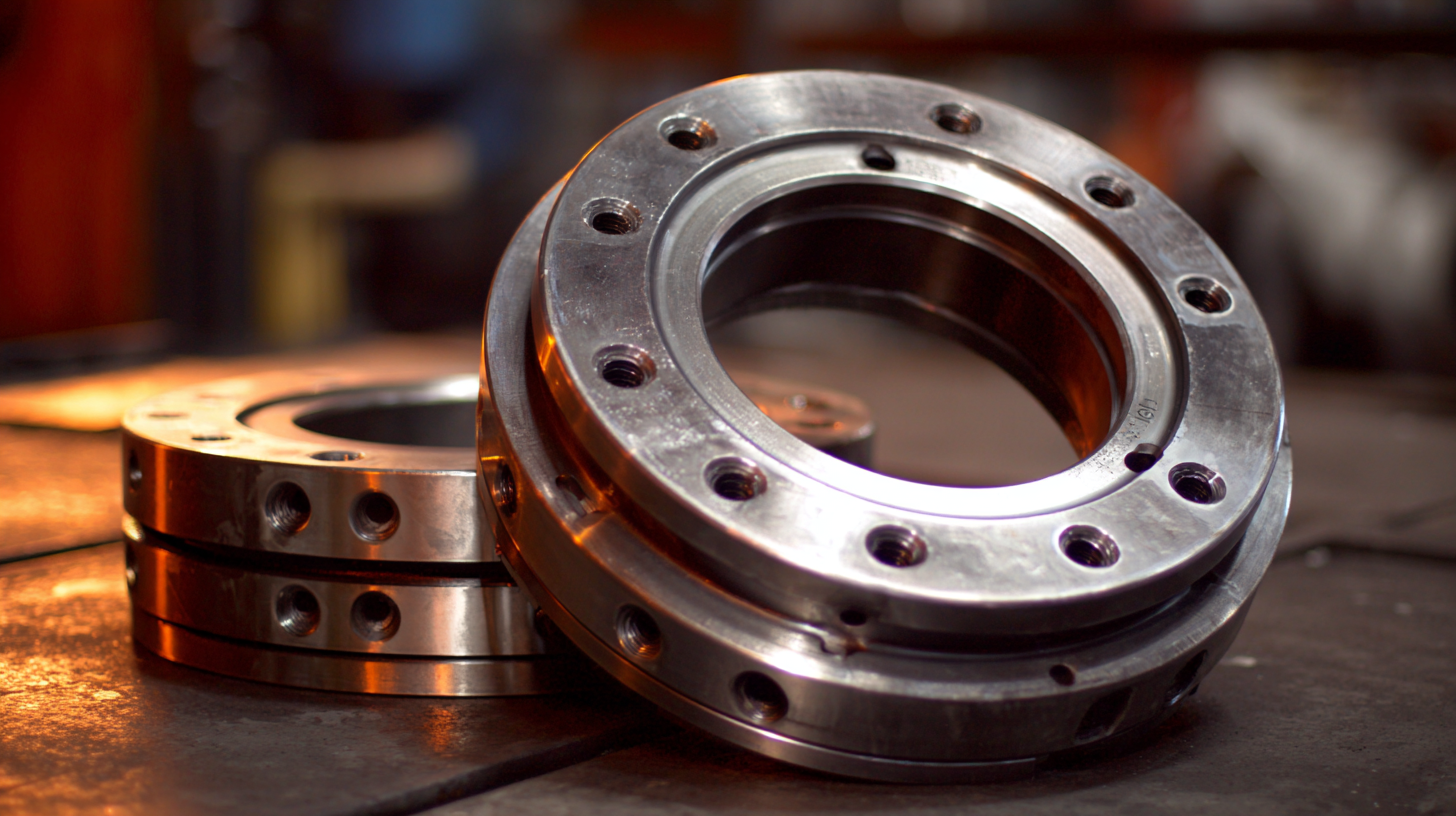
Comparing Pricing Structures and Payment Terms Among Suppliers
When selecting a large bore bearings supplier for your industrial requirements, it's crucial to closely evaluate their pricing structures and payment terms. Different suppliers often have varied pricing models; some might offer competitive upfront prices while others may include hidden costs in terms of shipping, handling, or additional services. It's important to request detailed quotes from multiple suppliers, allowing you to perform a thorough comparison. Understanding the breakdown of costs can help you make an informed decision.
Additionally, payment terms can significantly impact your cash flow and project budgeting. Some suppliers may require full payment upfront, while others might offer more flexible options such as partial payments or extended credit terms. Consider the implications of different payment structures on your financial planning. A supplier with flexible payment options may alleviate immediate financial pressure, even if their overall price is slightly higher. Therefore, it's essential to assess not just the cost but also the flexibility and terms offered, which can enhance your operational efficiency in the long run.
Understanding Supply Chain Reliability and Delivery Timelines for Bearings
When selecting a large bore bearings supplier, understanding supply chain reliability and delivery timelines is crucial. A report from the Machinery and Equipment Association states that 64% of manufacturers consider supply chain disruptions as a top risk factor for their operations. This highlights the importance of partnering with suppliers who have robust logistics and inventory management systems in place. Reliable suppliers ensure that they maintain adequate stock levels and can adapt to unexpected demand fluctuations, thus minimizing downtime in industrial applications.
Delivery timelines are another critical factor in the selection process. According to a study conducted by Industrial Distribution Magazine, companies that effectively manage their delivery schedules can achieve a 25% reduction in lead times and a significant boost in customer satisfaction. Therefore, assessing the supplier's ability to meet tight deadlines, alongside their historical performance records, is essential. Look for suppliers who provide clear communication regarding shipping schedules and offer real-time tracking of orders to ensure that production schedules remain uninterrupted. By prioritizing these aspects, businesses can secure a dependable partnership that supports their long-term operational goals.
Supplier Performance Metrics for Large Bore Bearings

Home
Products
Industrial Bearings
Deep Groove Ball Bearings
Self-Aligning Ball Bearings
Angular Contact Ball Bearings
Cylindrical Roller Bearings
Taper Roller Bearings
Spherical Roller Bearings
Bearing housing or Accessories
Miniature Bearing
Thrust ball bearing
Radial Spherical Plain Bearing
Pillow Block Bearing
Needle Roller Bearings
Automotive Bearings
Agricultural Bearings
Special Material Bearings
Industry Application
About Us
News
Contact Us



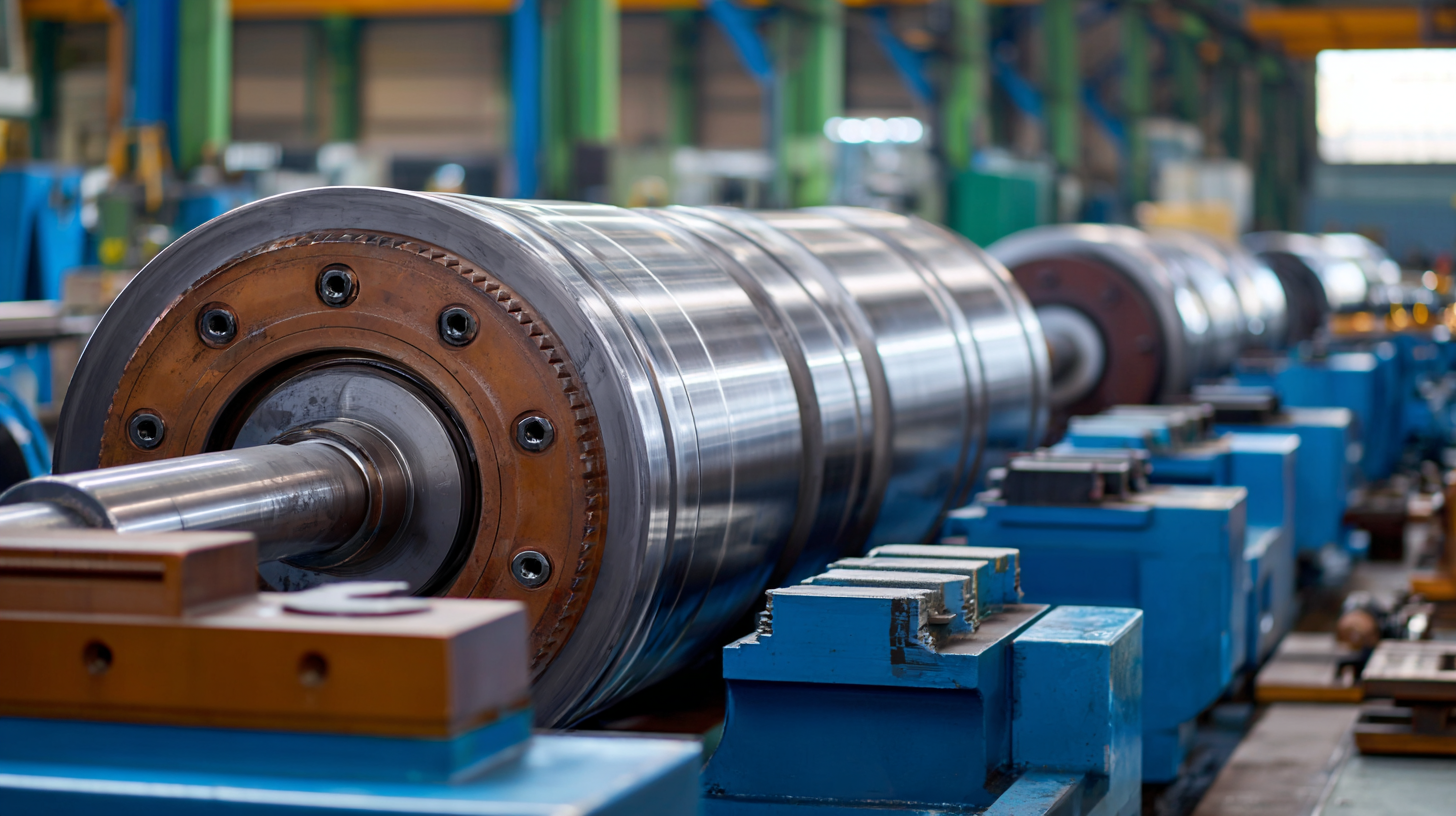
 When selecting a large bore bearings supplier for your industrial requirements, evaluating their experience and expertise in bearing manufacturing is crucial. According to the latest market reports, the global bearings market is expected to grow at a CAGR of 6.3% between 2023 and 2030, driven by the increasing demand for advanced manufacturing solutions. Thus, suppliers with extensive industry knowledge can provide tailored solutions that enhance operational efficiency and reduce downtime.
When selecting a large bore bearings supplier for your industrial requirements, evaluating their experience and expertise in bearing manufacturing is crucial. According to the latest market reports, the global bearings market is expected to grow at a CAGR of 6.3% between 2023 and 2030, driven by the increasing demand for advanced manufacturing solutions. Thus, suppliers with extensive industry knowledge can provide tailored solutions that enhance operational efficiency and reduce downtime.

